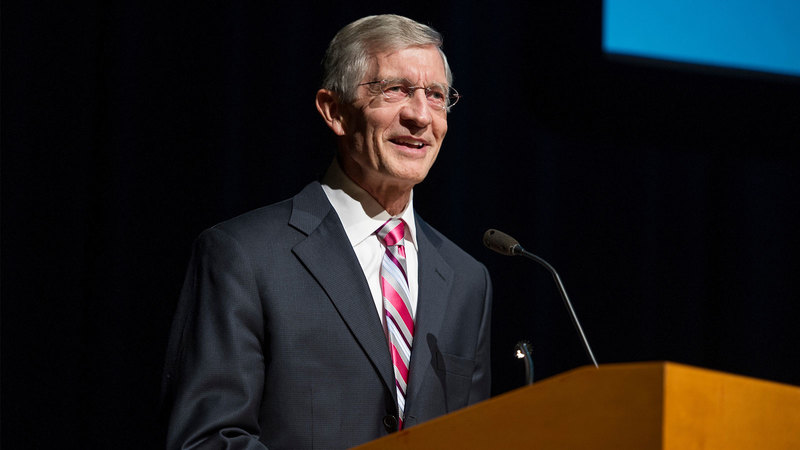
Thomas Burish Introductory Comments
As those of you who have attended the President’s address in recent years know, Fr. John prefers short introductions. Implying that I might need help in crafting such an introduction, he wrote it for me, and I will use it . . . . in just a moment.
Before I do, I want to take this moment to express my gratitude to you. As you know, this will be my last year as provost. I began as provost at Notre Dame approximately 14 years ago. I parachuted in from another university. You and your colleagues who were here on the faculty at the time did not know me, yet you welcomed me warmly and were generous to me. The average life of a provost at a major research university is approximately 4.8 years, and some provosts have told me that that seemed like an eternity. For me, the last 14 years have flown by. Because of Fr. John and John Affleck-Graves, because of my other colleagues in the Dome, the deans, staff, students, alumni, and others, and because of you, especially you, serving as provost has been the greatest privilege of my professional life. You have allowed me to be part of a team that has made the university better than it was, and has laid the foundation that will allow it to become better than it is. No professional experience for a provost could be more rewarding.
There is an African saying: To go fast, go alone; to go far, go together. Notre Dame has always preferred to take the long-view, to go far, and to do so by going together.
There is an African saying: To go fast, go alone; to go far, go together. Notre Dame has always preferred to take the long-view, to go far, and to do so by going together. Universities are places where the culture is to debate and critique, where there are always multiple views on any topic. And that is the way it should be. But unlike many other universities, Notre Dame has enjoyed this culture without losing its civility, its human decency, its ability for people to debate each other but still to work together as a team. I believe that it is in part because of this team approach that on virtually every metric associated with academic excellence, over recent years Notre Dame has made significant progress.
That progress has also taken place because of your individual excellence. I am not saying that because I happen to be speaking to a room filled with faculty. I have often said, as have others, and I truly believe, that no university can be better than its faculty. Without a great faculty, the best educational programs won’t be created or expertly delivered, the top students won’t come and flourish, the great books won’t be written, and the great discoveries won’t be made. And at Notre Dame there is one other special quality the faculty has, you have, that many other top private research universities once had, but lost—the commitment to pursue truth through both faith and reason, to commit to develop all aspects of a student—intellect, yes, but also body, spirit, and soul. You are distinguished in your scholarship, brilliant in your fields, but the true power of your work is not only the quality of your instruction or the impact of your research and scholarship, but also in the values and perspectives you impart to our students. How many students become wise because of your wisdom? How many become generous because of your generosity? How many express their disagreement civilly because they have observed you expressing your disagreement civilly? We are here to form complete human beings—to help our students become better people, just as we try to do the same ourselves.
It has been a joy and a privilege to take part in this mission with Fr. John—who is the best boss and role model a provost could have—and with all of you. You have allowed me to be part of your team, and to share in your success. I shall always be grateful to you. From the bottom of my heart, thank you.
And now, for that introduction I have been instructed to give, shorn of any praise or ornamental phrase, “Ladies and gentlemen, the 17th president of the University of Notre Dame, Fr. John I. Jenkins.”